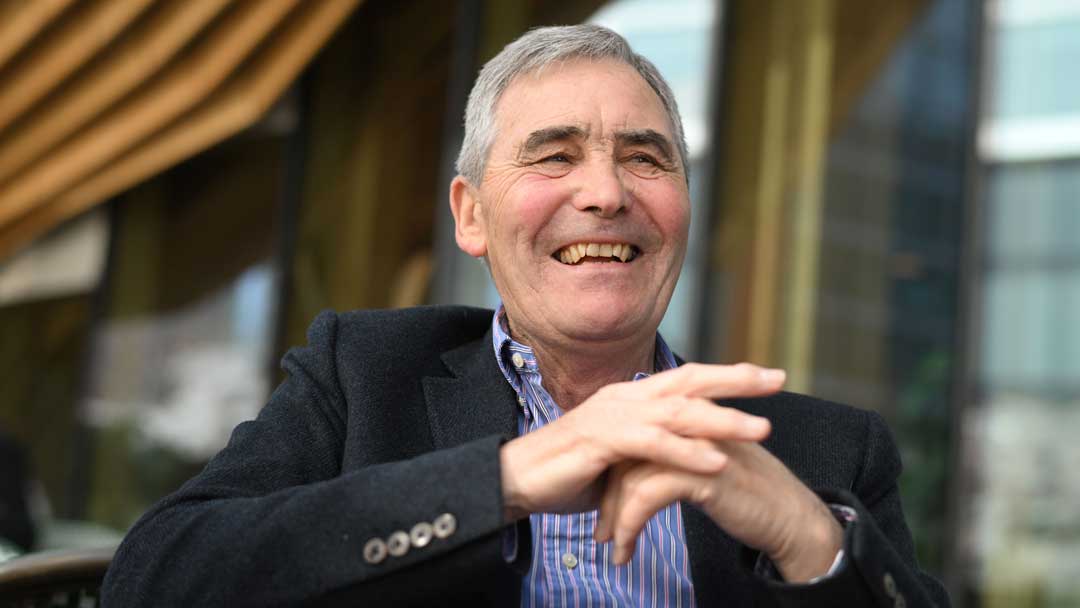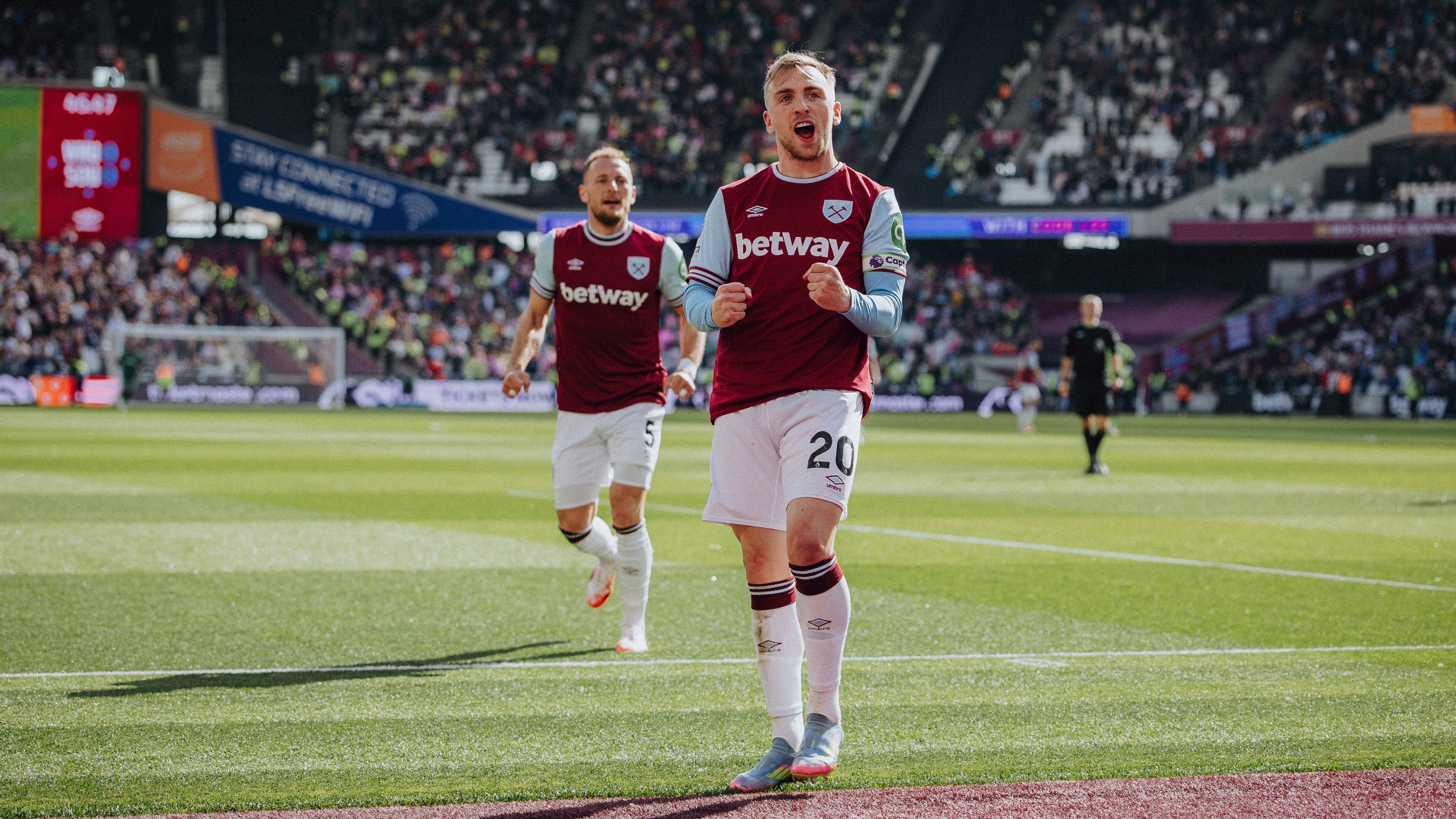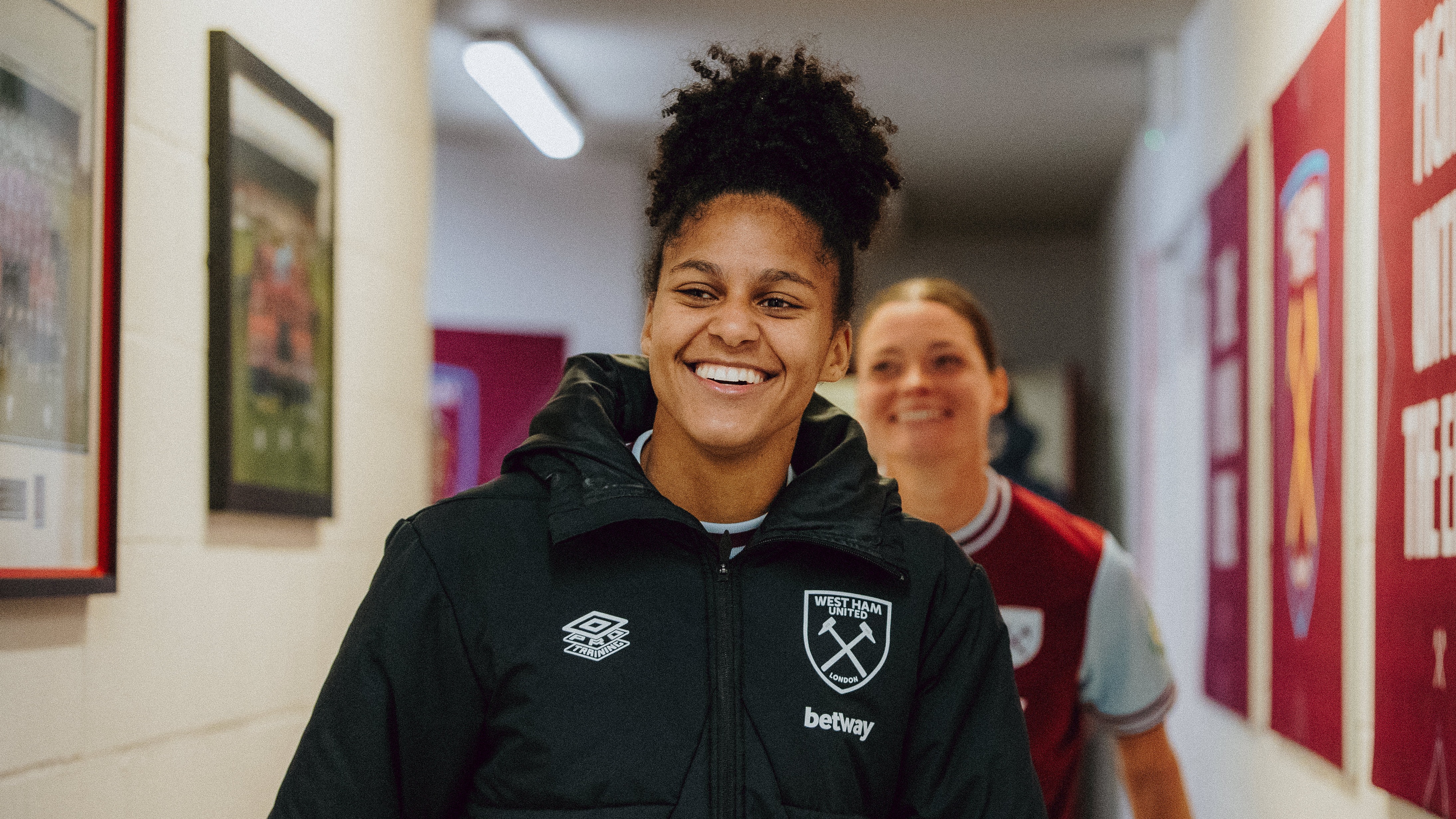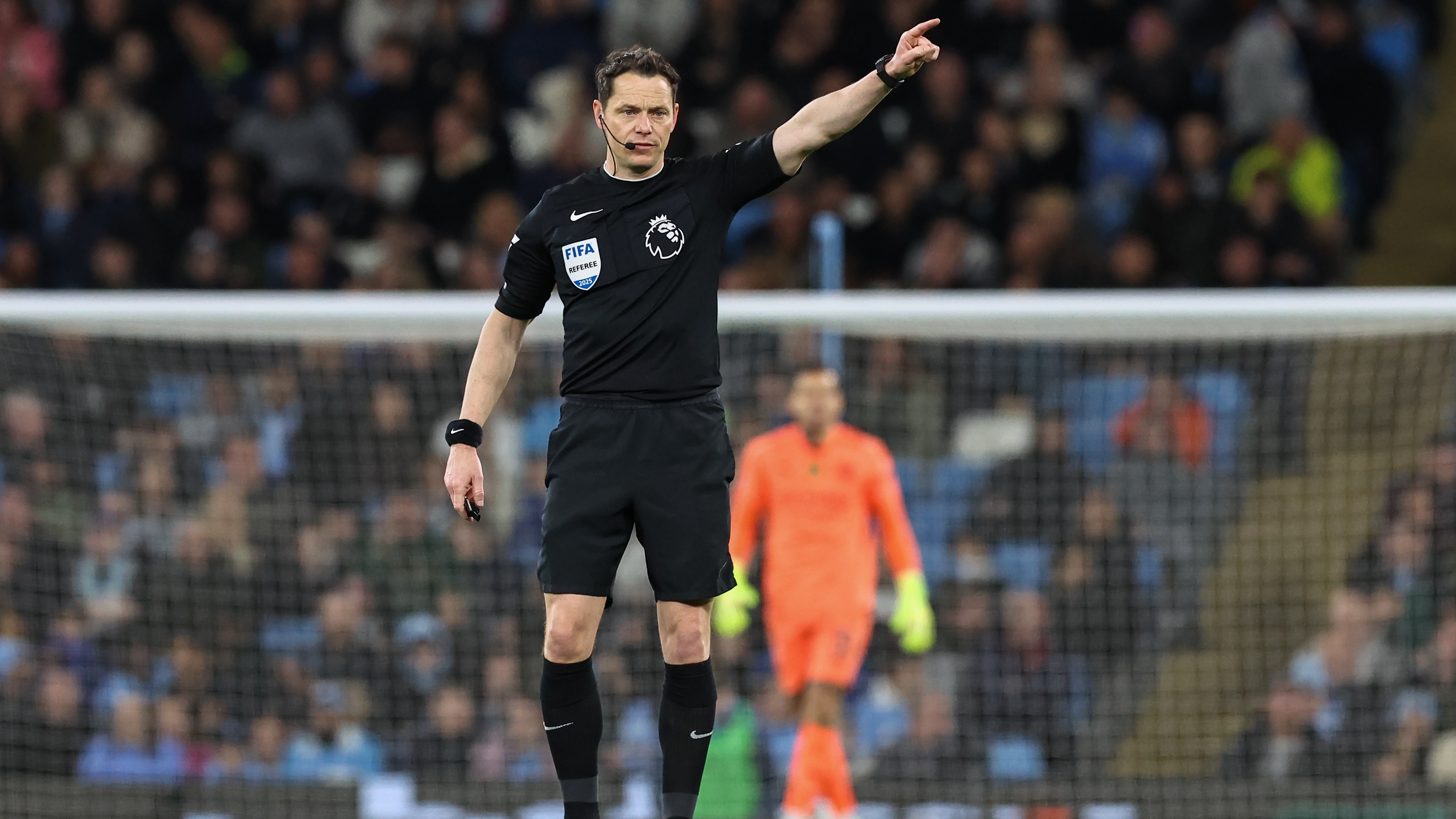Before the Hammers' UEFA Europa Conference League success in 2023, it was 24 years since West Ham United last reached an FA Youth Cup semi-final.
It was the spring of 1999 and the Hammers’ scholars were sweeping all before them. A team that included future England internationals and Premier League winners Joe Cole and Michael Carrick, future Australia international Richard Garcia, among others, was on its way to winning the FA Premier Academy League.
And, after overcoming Everton in that Youth Cup semi-final, the young Irons would defeat Coventry City by a record 9-0 on aggregate to win the trophy for the third time in the Academy of Football’s history.
The man who coached them to that historic double was Tony Carr MBE, who celebrates his 73rd birthday today, 5 September.
An Academy player in his own right in the 1960s, Carr was forced to retire through injury before returning to Chadwell Heath via a stint as a PE teacher, and spending four decades developing some of the finest players not just in Hammers’, but English football history.
Now enjoying his retirement in rural Essex – albeit while still consulting clubs, governing bodies and coaches when asked – Carr keeps a keen eye on his Club and is still a regular at London Stadium on matchdays.
A youthful and athletic grandfather, Carr recently wrote and published his memoirs, charting nearly half-a-century of service to West Ham United. He shared some of those memories, his coaching philosophy and much more…
Tony, you have written your autobiography!
“Yes, I think lockdown helped concentrate the mind. I had started writing stuff down and a lot of my family were saying ‘you have been there 43 years as a coach, plus the four you had as a young player, so you’ve got stories to tell’.
“I hadn’t got a publisher, but I got advice from people who had written stuff about how to write it and chaptering it. Every word is my own word, it’s not been ghost-written.
“West Ham are my team and I hope it’s been well-received.”
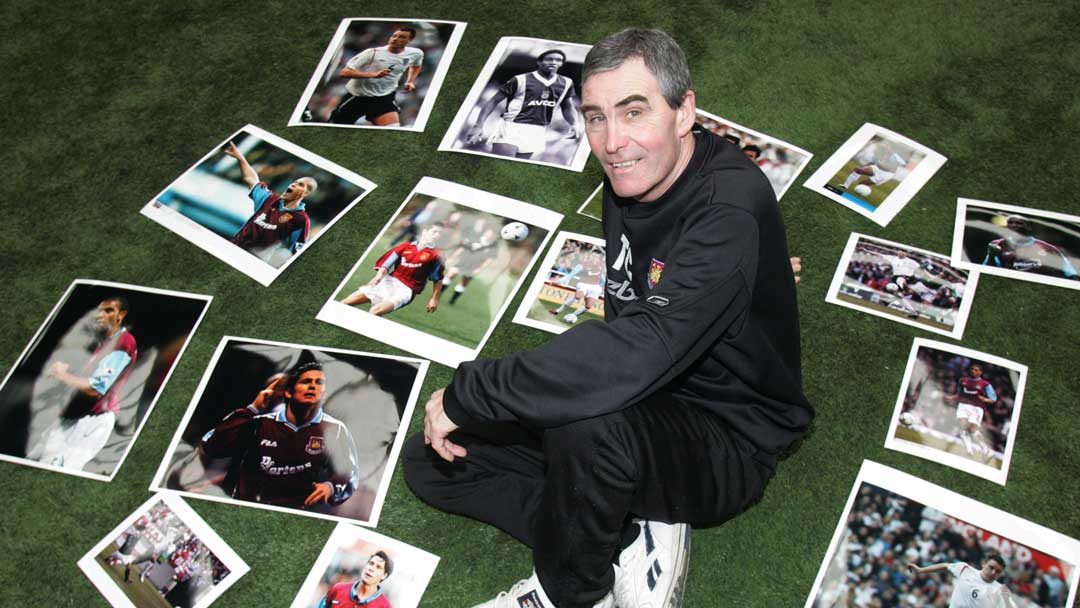
How was the experience for you?
“It was frustrating at times, as I had mental blocks and obviously I’m not a born writer, but gradually I’d have conversations with people and they’d jog my memory and either they’d share or I’d remember little anecdotes.
“Then someone said to me it would be great to get some of the young players you’ve had come through and talk to them about their time at the Academy and around me, so I drew up a list of the players I and my team helped develop and spoke to Rio Ferdinand, Joe Cole, Michael Carrick, Frank Lampard, Mark Noble and Steve Potts.
“Pottsy and Mark are one-club men, while Rio, Joe, Michael and Frank all went on to win the Champions League and become England internationals with many, many caps. They were all terrific and very accommodating. It was fun for me and I think they enjoyed it, too.
“I started to add my stories to it and we ended up with over 90,000 words!”
Without giving it all away, how does your story go?
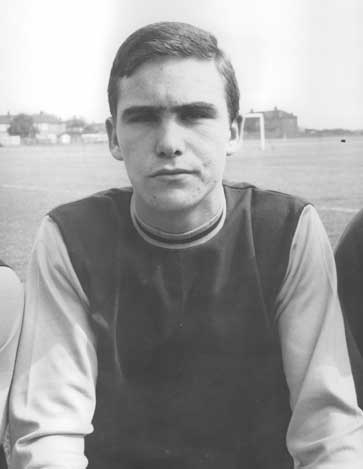 “I started out as a young footballer, playing for East London and being brought up in Bow as a West Ham supporter. I then talk about my life as a young apprentice at West Ham and how Ron Greenwood and John Lyall shaped me into the coach I would become.
“I started out as a young footballer, playing for East London and being brought up in Bow as a West Ham supporter. I then talk about my life as a young apprentice at West Ham and how Ron Greenwood and John Lyall shaped me into the coach I would become.
“I passed my first coaching badge as a young professional, as we did a course on our day off. John Lyall took it and, at the end, The FA came and judged us and we received a Preliminary Award, which is the equivalent of a UEFA ‘B’ Licence today.
“Then it went through my career as a young player after leaving West Ham, which was short-lived after breaking my leg, and then how my career in coaching basically took off.
“I got invited back part-time in 1973 by John Lyall after John Dick, who was a stalwart and a great player for West Ham, retired. I knew Johnny Dick from my time as a PE teacher, as he used to come to Fairlop Sports Centre and help us when we took the kids’ coaching, and I think he must have put a word in for me.
“I had an interview with Ron Greenwood and I came back working two nights a week and the weekend for £10 a week!”
You were only 23, so that was a big leap of faith for Ron and John, even though he knew you and your coaching background?
“Yes, it was only part-time, so I was working as a schoolteacher during the day and coming into West Ham on Tuesday and Thursday evenings and taking one of the junior teams on a Saturday morning, and one schoolboy team on a Sunday morning.
“That first team I ever took included Alan Curbishley and Paul Brush, who would play in the first team and have great careers, so that was the start.
“I did that for seven years, then became full-time in 1980.”
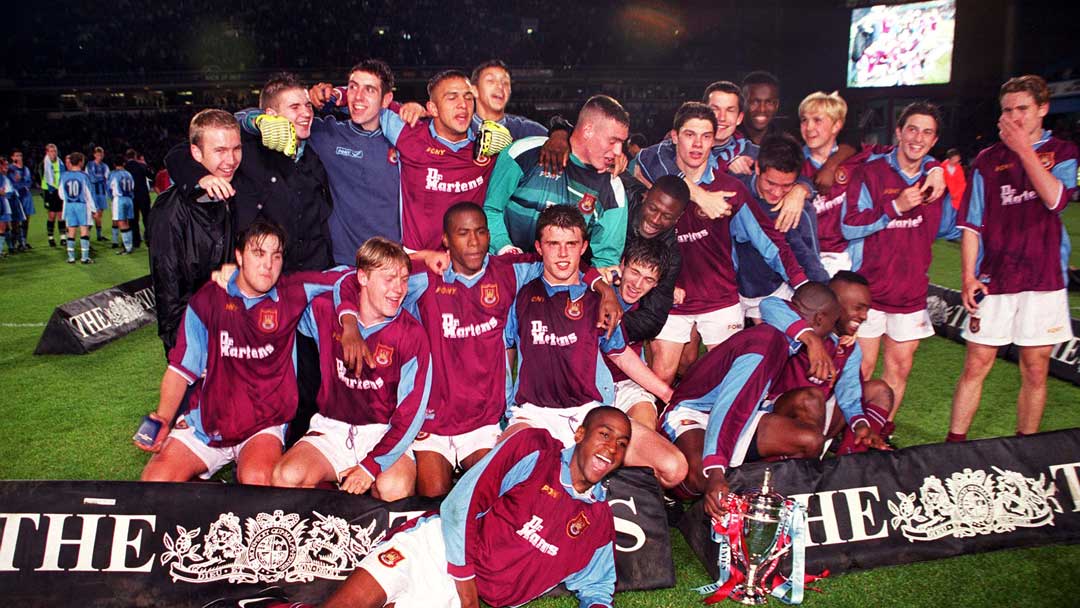
What was your overarching philosophy as a coach?
“My first thing for any player is to look at what influence they have out on the pitch and work out his strengths and super-strengths.
“Is he is a striker who scores in every game? Is he a defender who very few people get past? Is he a goalkeeper who is constantly making saves or coming out for crosses?
“So, I pick up on something and then my philosophy is to develop it. At West Ham, the philosophy has always been to play a fast-moving, forward-passing game with good technical ability, with players who can play under pressure in tight areas with the ability to play one or two-touch, or beat players to create their own space.
“My philosophy was based around those things, so I designed a coaching programme around the Academy around them and it’s been improved on over the years.
“One thing you mustn’t stray away from is what caught your eye in the first place and let the player lose their super-strength. If they are a dribbler like Joe Cole, don’t tell them to stop dribbling and start passing. You obviously try to show him the right time to pass and when to dribble, but never stop him dribbling.
“Likewise, never stop a forward shooting. Just show him there might be alternatives in certain situations, because at the end of the day they have to make their own decisions on the pitch. You paint pictures for them and when they appear, he recognises it because you have practised it and shown them.
“Ron’s mantra was always ‘get a picture’. He told me that as a 15-year-old apprentice but I didn’t understand what he was talking about, but what he meant was, when I hadn’t got the ball I should be scanning the pitch so I had an idea of where everybody was, so when the ball came to me I could play quicker and earlier.
“I always tried to encourage players to play quickly, but with control and vision and purpose. It was those things, and trying to improve their weaknesses, but I always encouraged players to work on their strengths.”
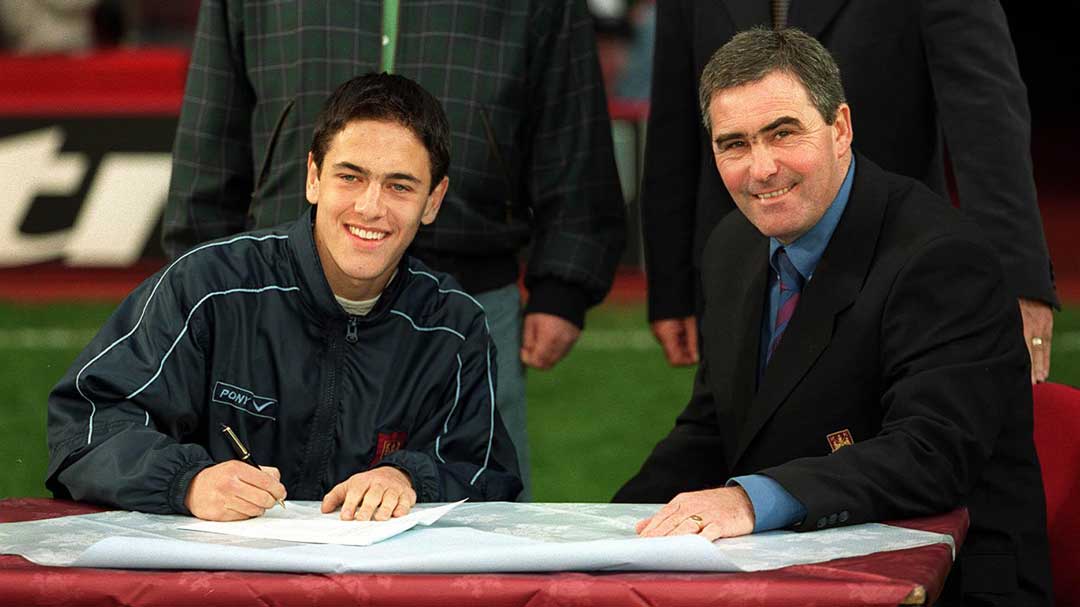
Does that philosophy explain why you have produced players in every position, with so many different strengths?
“What’s important with players who are doing very well is that you don’t let their standards slip.
“I remember talking to Rio about the very last time he played for the youth team. He was on the cusp of the first team, it was at Chadwell Heath against Norwich and he was awful. He was sloppy, got caught in possession and I dug him out after the game and told him that he was going to be a very good player, but the only thing that would stop him was complacency.
“He had let his standards drop and played with no consistency and reminding him of that helped him keep those standards very high and pushing on to improve. He appreciated being told the truth.
“Mark Noble was the same. He knew he had to set high standards every week, stay enthused, stay focused etcetera. That’s why he was so consistent.”
That environment is one that existed even before you returned as a coach, as was evidenced by the incredible players the Academy produced in the 1950s and 1960s, and is one you nurtured?
“I think ‘environment’ is the key word, there, and I always tell people that is what set West Ham apart. It was the environment we created.
“It was very welcoming first and some players, if you asked them, that’s why they signed. Michael Carrick says his parents felt comfortable when they came in to let him move down from the North East.
“The coaching was also sympathetic to the player. It wasn’t easy, but we understood each individual and created their programme around them and treated them all with respect. That was the beauty of it.”
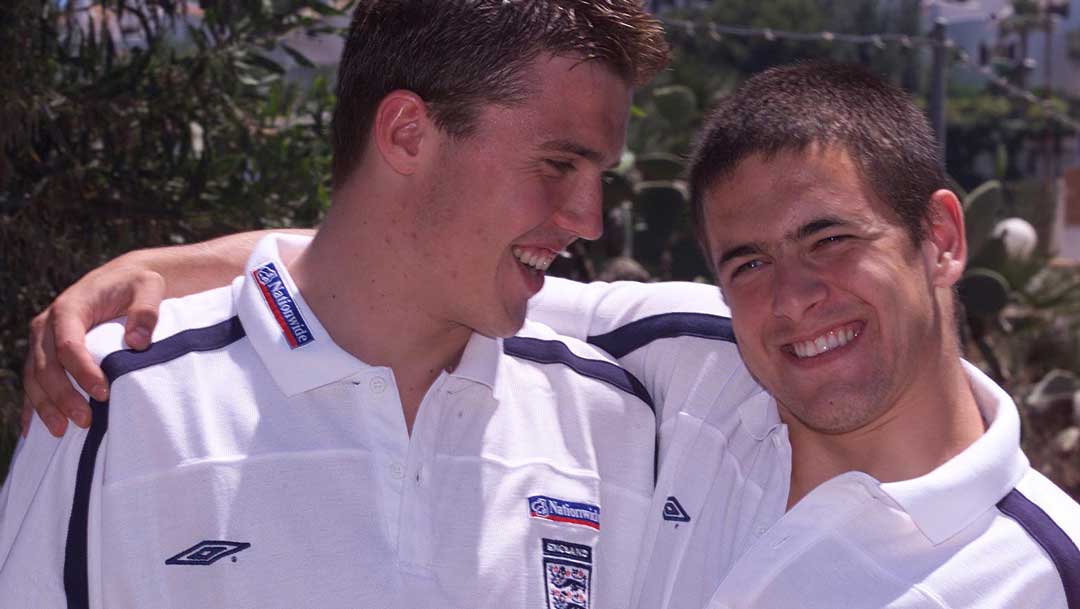
It was very much a team effort, too, wasn’t it, from the staff at the training ground to the scouts to the coaches to your long-time assistant Paul Heffer?
“Very much so. When I started full-time in 1980, I was the only full-time member of staff working on the youth and schoolboy programme.
“The only other person was Eddie Baily, who did scouting for the first team and also did a bit of schoolboy scouting and recruitment. It grew, as all Academies have done, and it’s retained that personal touch so every coach and staff member knows one another and is working together on one production line. That’s important.”
Developing players is what your job was and if we listed them all we’d fill the Programme – from Curbs and Paul Brush to Declan Rice, who joined the Academy during your tenure?
“With Dec, he was 13 and our then-head of recruitment Dave Hunt said two players had been released by Chelsea, so I said ‘bring them in’ and as soon as you saw them you could see they had something.
“Declan, you could see, had great attributes. He was similar to Mark Noble in that he was focused, looked you in the eye and played with a passion, wanted to get better and worked very hard at his game, so we signed him straight away.
“Who could know at the time what level he’d reach, but he’s surpassed all our expectations, so good luck to him.”
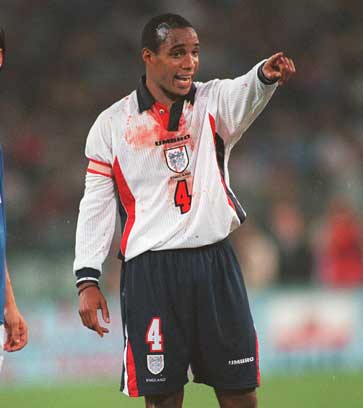
We won’t speak about every player, as nobody will buy your book, so which of them have given you your proudest moment? Winning the double? Paul Ince captaining England? Having six graduates in England’s World Cup squad?
“With Incey, that was a proud moment. Seeing Tony Cottee play on New Year’s Day 1983 at 17 and scoring against Spurs, then getting his first England cap, too. There were many other firsts – Frank and Rio playing for England.
“When any Academy player gets into the first team, there is a buzz about it and it’s terrific.
“With Ben Johnson, he joined when I was here when he was eight and he’s developed steadily and played over 50 games now. Someone like him, it’s really pleased me to see how our team helped him, people like Paul Heffer and Jimmy Hampsheir, who worked with the junior players when they were nine or ten.
“Everybody plays their part, but the one who plays the biggest part is the player themselves, so there have been many, many highs.”
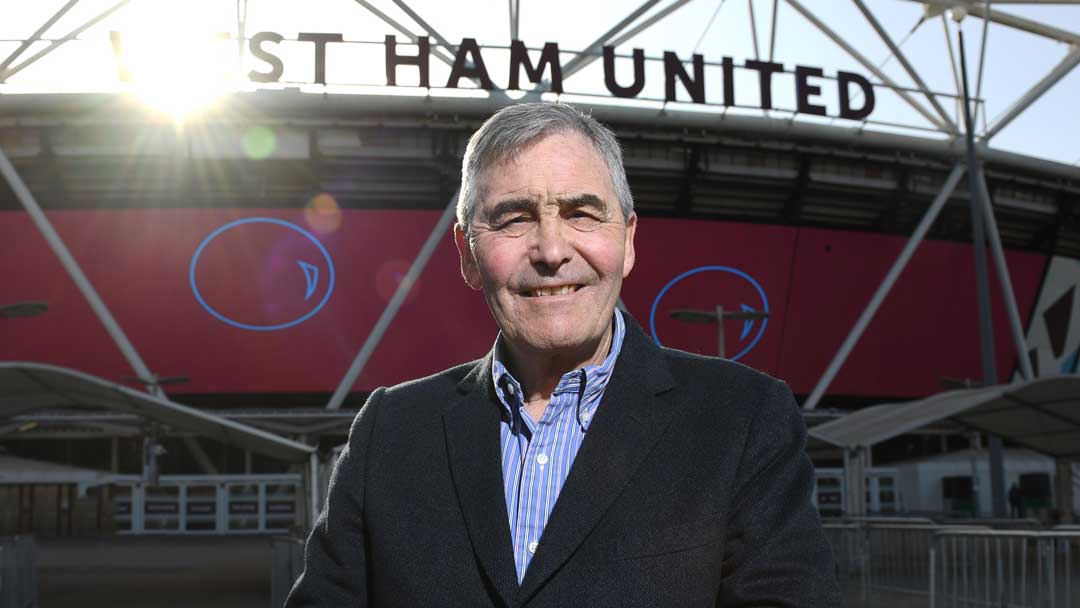
There was once a time when every junior club and school had a copy of the book ‘Tony Carr’s Soccer Coaching’, and football is not just the simple game it’s portrayed as. It’s thousands of actions that, if enough are done right in a row, you score a goal?
“Development coaching is different to first-team coaching, because you are practising rather than developing technique by the latter, and you’re focusing more on team than individual work.
“At Academy level, your sessions are taking aspects of the game, whether it’s wing play or midfield play or defensive play or a goalkeeper working with his back-four or back-three, or midfield players taking the ball on the half-turn – what you’re trying to do is show them scenarios in the game.
“It could be out, back and in, getting the ball wide and putting in early crosses, and doing things repetitively so that, when it comes to a game, all the different aspects of the game are there and player sees the picture and recognises the situation.
“In training, if a player did something that didn’t work, I’d stop sessions and ask them ‘what did you see?’ and they’d explain their action and we’d discuss it so that next time they had a bigger picture in their heads and make better choices.
“It was about seeing the movement in their heads before it happened, then it would be second nature to them when they got to first team level.
“You don’t get thinking time as you go up the levels, so the thinking has to be done before you get the ball. You always have to be scanning and looking to play one and two-touch.
“That’s the game at the very highest level.”
Talking to you Tony, I sense you miss it. Do you?
“I miss it every day, just coming into a football environment. West Ham is still my Club, still my team, even though I’m not working here any longer. I go and watch the youth team and U21s occasionally, and I come to London Stadium to watch the first team.
“I just love it, so I do miss it. I miss the involvement and having this sort of conversation.”
And your services to West Ham United and football were recognised when you were made an MBE in 2011, and you were invested at Buckingham Palace by the late Queen Elizabeth II. What a moment?
“It was a really proud moment. My wife and three children were there, which was great, and it’s a day I will always remember.
“It was surreal driving in the gates of Buckingham Palace and being waved in, and then meeting The Queen was something I could only have dreamed of. It was a moment I’ll never forget.”
*Tony Carr’s memoirs 'A Lifetime In Football' are available to buy in the Stadium Store and from officialwesthamstore.com now, priced £20.
